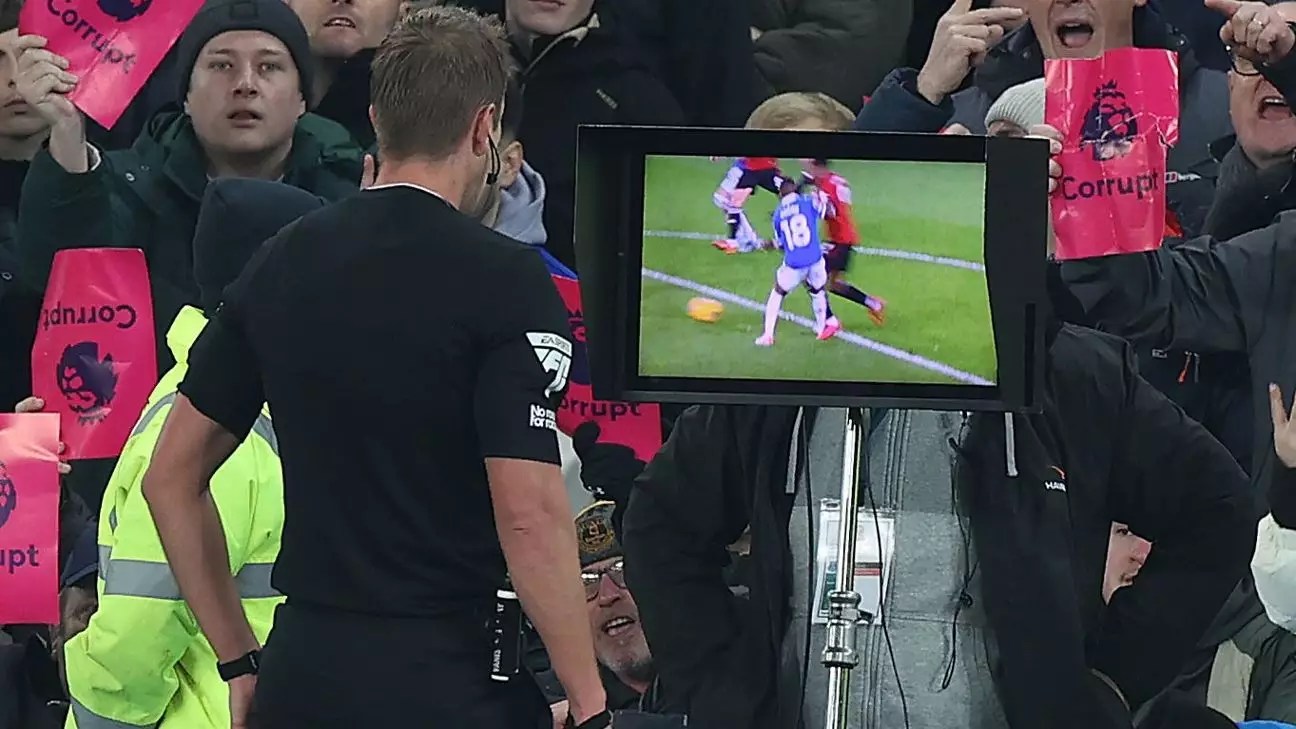The recent vote at the Premier League AGM left Wolverhampton Wanderers disappointed as their motion to remove VAR from English football was defeated by a significant margin. Despite Wolves’ concerns about the impact of VAR on the game’s spirit, only one club backed their motion while the rest of the clubs voted in favor of keeping the video assistant referee system in place. The majority decision highlighted the importance of VAR as a safety net against poor on-field decisions, with clubs agreeing to work on improving its implementation rather than scrapping it altogether.
Following the decision to retain VAR in the Premier League, clubs came together to outline six action points for enhancing the system’s effectiveness. These action points focused on maintaining a high threshold for VAR intervention to ensure consistency and minimize disruptions to the flow of the game, as well as reducing delays through the introduction of semi-automated offside technology. Improving fan experience was also a key priority, with plans to enhance communication, increase transparency, and deliver a comprehensive VAR communication campaign.
Despite the defeat of their motion, Wolverhampton Wanderers released a statement expressing their disappointment but accepting the decision of their fellow clubs. They emphasized the importance of ongoing improvements to VAR, particularly in addressing issues related to delays, consistency, and fan experience. While maintaining their belief that football would be better off without VAR, Wolves committed to working closely with the Premier League and PGMOL to ensure that VAR evolves to better serve the interests of the sport.
Ongoing Challenges and Solutions for VAR
Although the Premier League highlighted a decrease in VAR errors from the previous season, there remain concerns about the overall impact of the system on the game. The decision to have referees announce explanations for VAR overturns to the crowd was seen as a step toward improving transparency, but it may not fully address the frustrations of fans who feel VAR has detracted from the game. The upcoming introduction of semi-automated offside technology aims to streamline decision-making and reduce delays, but challenges remain in achieving accurate and timely calls.
Looking ahead, the use of technology in football, including VAR, is likely to evolve further to enhance the officiating process and improve the overall fan experience. While there are concerns about the impact of VAR on the game’s integrity and flow, continued efforts to refine the system and address its shortcomings suggest a willingness among clubs to adapt and find solutions. The debate over VAR is far from over, but the focus on enhancing its capabilities and communication with stakeholders underscores a commitment to navigating the challenges of modernizing the sport while preserving its essence.


Leave a Reply